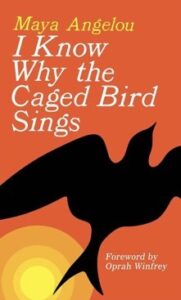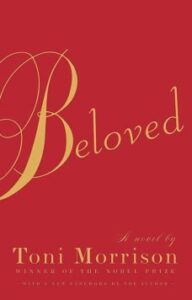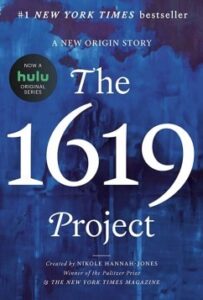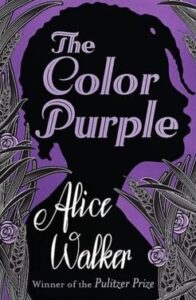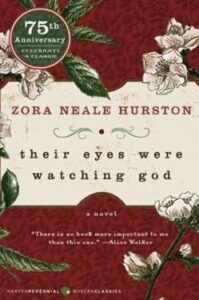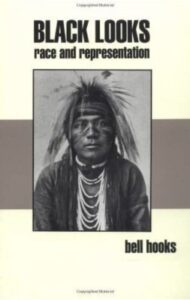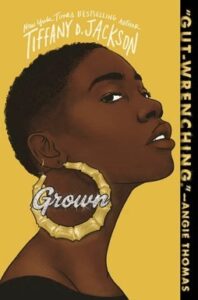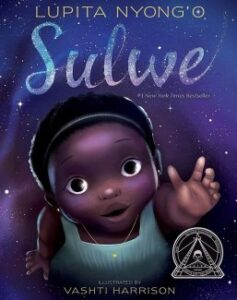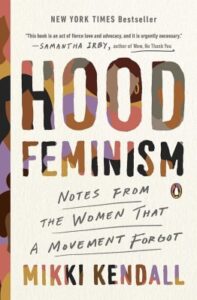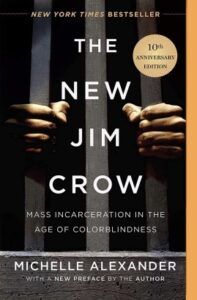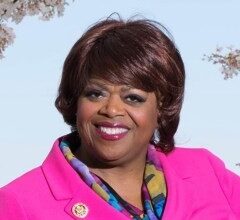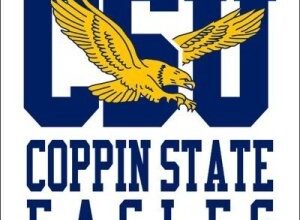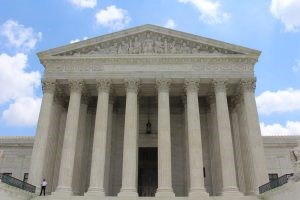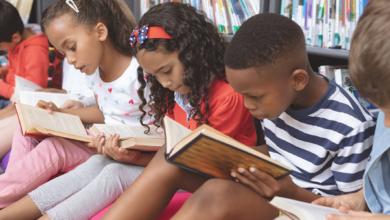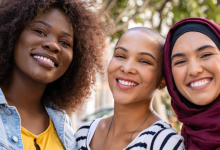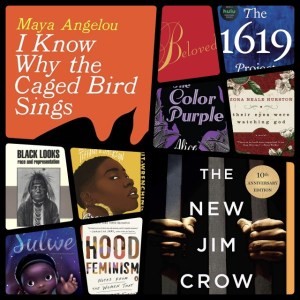
10 banned books by Black Women
By Aziah Siid,
Word in Black
Your favorite Black woman author? Chances are their work has been banned or challenged in a school district or library in the United States.
According to data compiled by the American Library Association, there were 781 “attempts to ban or restrict library resources between Jan. 1 – Oct. 31, 2022.” In addition, a shocking 1,835 unique titles were “targeted between Jan. 1 – Oct. 31, 2022.”
The suppression of literature that features queer or BIPOC characters, addresses the truth about the Black experience, or is specifically written by Black authors, is common. Books are either being challenged — which means people are attempting to get them removed but aren’t successful — or they’re banned outright.
But book banning in the United States is nothing new — it’s actually been happening on these shores since before we became a nation. In 1637, for example, the Puritans banned “New English Canaan” by English businessman Thomas Morton.
His offense? He publicly criticized the strict rules of the newly established Massachusetts colony.
Since then, the crusade against books has taken on many forms. More than 380 years after Morton’s controversy, politicians, school boards, prejudiced parents, andeven police are deciding what literature K-12 students should have access to.
As Dr. Fedrick Ingram, secretary-treasurer of the American Federation of Teachers, told Word In Black last year, “Laws have been enacted that have teachers on their heels.”
In addition, Ingram explained that teachers “can no longer teach books that have been taught as curriculum in English classes for years.”
Derrick Ramsey, the co-founder of the nonprofit Young, Black and Lit, says that this attack on literature is actually an attack on the entire education system.
“Education should be the space where you can learn about everything and anything that you want,” Ramsey told Word in Black. “There should be no limits to the creativity of the ideas and the dreams that you inspire into every child.”
“The Bluest Eye” by Toni Morrison has long been one of the most banned or challenged books in the United States. But, there are plenty of other books by Black women who used the power of their pen — and have had their work banned or challenged as a result.
Here are 10 others that students, parents, educators, librarians, and authors have fought to keep on school and library shelves.
I Know Why The Caged Bird Sings
Maya Angelou’s “I Know Why The Caged Bird Sings” is the first of seven autobiographical works by the poet and civil rights activist. Published in 1969, the book describes her coming-of-age journey as she deals with the toils of sexual exploitation, racism, and insecurities as a growing young woman. In 2001, the book was challenged for being on a Poolesville, Md., high school reading list and started a string of bans and removals throughout the U.S.
Beloved
“Beloved,” by Toni Morrison, is a spellbinding portrayal of a woman trapped in the traumatic memories of life as a slave. Born into slavery, the protagonist, Sethe, escapes to Ohio, and although she is physically free from bondage, she is still held captive by her memories of Sweet Home — the beautiful farm where horrendous events took place. The 1988 Pulitzer Prize-winning work examines the destructive legacy of slavery even as time passes.
While structural racism has changed forms since the book’s publication in 1987, that pain and suffering can be seen throughout American society today. In 2007, two Kentucky parents raised concerns about violence in the novel, and it was pulled from a senior Advanced Placement course at Eastern High School. This blockage from the reading list was not the first of its kind, as parents began pushing back against the novel as early as 1995.
The 1619 Project
Written by New York Times journalist Nikole Hannah-Jones, “The 1619 Project” reframes Americans’ modern-day understanding of slavery. The NYT Magazine award-winning “1619 Project,” rather than covering the enslavement of Black people as an additional part of U.S. history, put it at the epicenter of our national narrative. The book rendition of the project is a culmination of 18 essays and 36 poems that speak directly to our current moment in time while contextualizing the issues of race and class that plague our society. In 2021, lawmakers began the push to ban it from schools.
The Color Purple
Bringing readers through a journey of sisterhood and hardships, “The Color Purple,” written by Alice Walker, is a cultural touchstone of modern literature. The one-of-a-kind novel takes readers through the lives of Celie, Nettie, Shug Avery, Sophia, and their experiences as they navigate abuse and intimate partner violence, all while narrating their pain, self-determination, bravery, and growth. The stories of African American women in the South during the early 20th century is a story that continues to transcend even today’s generation. The book has been banned from school libraries since 1984.
Their Eyes Were Watching God
“Their Eyes Were Watching God,” by Zora Neale Hurston, follows the life of Janie Mae Crawford, a young, conventionally attractive, light-skinned Black woman navigating the intricacies of colorism and misogyny during the early 20th century. In 1997, parents at Stonewall Jackson Highschool in Brentsville, Virginia, objected to the sexual explicitness of the text, but after review, the text remained on their English reading list.
Black Looks: Race and Representation
“Black Looks: Race and Representation,” written by feminist icon bell hooks, examines the African American experience and looks at topics like Black femininity, culture, and history. The collection of essays is designed to challenge ways to discuss the contemporary representation of race and ethnicity within a white supremacist system. Hooks is named as one of the several Black authors cited by Florida Governor Ron DeSantis in an explanation for blocking the African American Advanced Placement course.
Grown
Written by award-winning author Tiffany D. Jackson, the 2018 novel “Monday’s Not Coming” is Jackson’s latest book removed from circulation. The book dives deep into the sudden disappearance of a teenager, Monday Charles. As her best friend Claudia digs more into her friend’s disappearance, she discovers no one can recall the last time they saw Monday. While she continues the search for her friend, Claudia asks herself how can Monday just vanish without anyone noticing?
Sulwe
Lupita Nyong’o’s debut picture book, “Sulwe,” goes on a heartwarming journey to inspire children to see the beauty in their Blackness. The main character, Sulwe, which translates to “star” in the Dholuo language, is the darkest person in her entire family and touches on the pangs of colorism in a world centered around European beauty standards. The book has been tabled by school boards in Florida and Pennsylvania.
Hood Feminism
“Hood Feminism” by Mikki Kendall is a feminist text that examines the shortcomings of the mainstream feminist movement. Through a collection of essays, Kendall points to prominent white feminists who have, historically, demonstrated a lack of intersectionality — often exhibiting bias when it comes to race, class, sexual orientation, and disability and its intersections with gender. Drawing on her own experiences with violence, poverty, hypersexualization, and more, “Hood Feminism” looks at how advocates can stand in solidarity as a movement that wholly addresses feminist issues. In response to being pulled from some shelves, Kendall tweeted she will not stop using her pen to speak out against injustice.
The New Jim Crow: Mass Incarceration in the Age of Colorblindness
Michelle Alexander’s “The New Jim Crow: Mass Incarceration in the Age of Colorblindness” is a staggering account of the criminal justice system. The book highlights the role of mass incarceration as a driving force of racial control in the United States. Alexander, an attorney, shows the truth, not just about the shocking percentage of African American men who are incarcerated, but also a revelation of how mass incarceration is a modern continuation of slavery.
This article was originally published by Word in Black.
The post 10 banned books by Black Women appeared first on AFRO American Newspapers .

